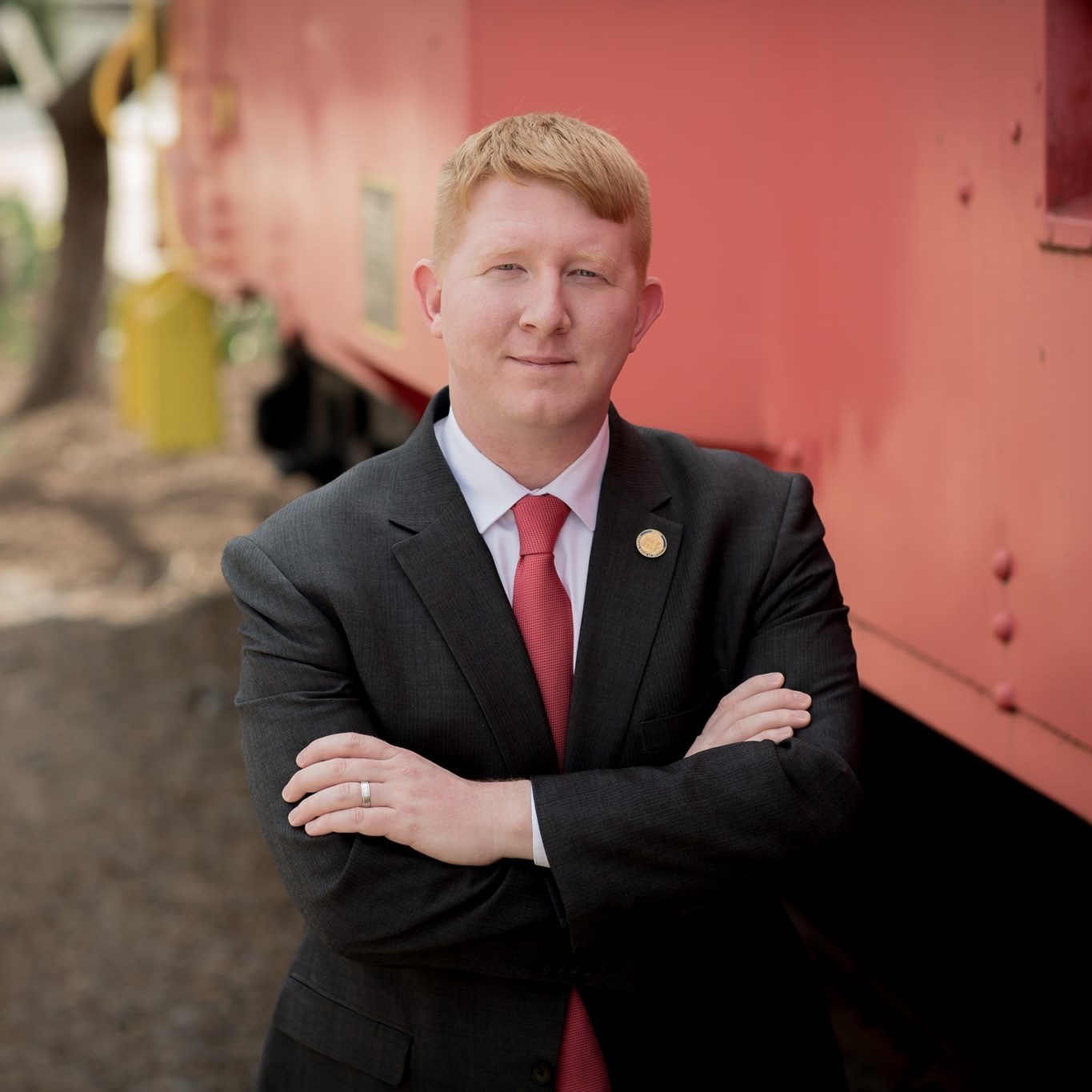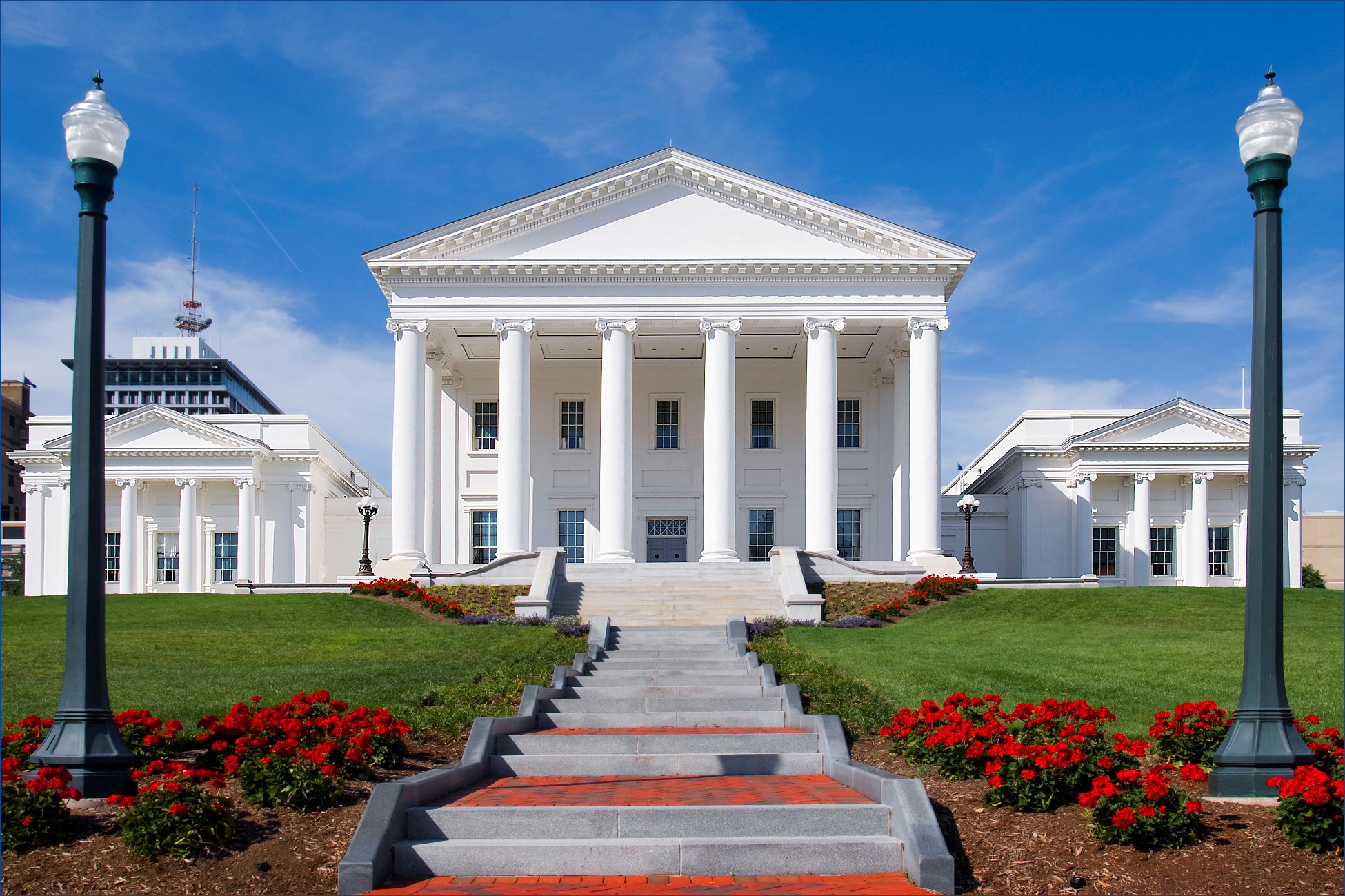Who Is Lee Carter?
Lee Carter is known for being the only Democratic Socialist elected in the Virginia General Assembly. He has often received criticism from Republicans, who went so far as to call for his resignation, as well as his Democratic colleagues in the House of Delegates. Some people would even call him an extremist, but does that title really fit?
As a Socialist, Carter often receives a lot of criticism because of the negative connotation surrounding the word. But what does socialism really mean? “All that word means is that I believe that businesses should be owned and operated by the people who work there, not outside investors,” Carter explained. “On a small scale that could look like a diner where everybody owns a share, and every two weeks, after they clean off the tables, they bring out a balance sheet and decide who’s going to work when and what to do with the money. On a large scale, it looks like the Mondragon Cooperative, which is the world’s largest employee-owned enterprise. It was started in the ‘50s in a church basement in Spain, and now they have 87,000 employee-owners. They work in 90 plus countries, and they’ve never had a lay-off because the CEO has to run for reelection.”
When asked why people are afraid of socialism, he said, “We’ve had decades of the word being misused by politicians. It’s one of the most intentionally misused words in American history. When people hear the word, they think it means massive state-control over everything, but that’s not what it means. It never has been.”
Despite the apparent misunderstanding of the word “socialism”, Carter has still been called an extremist by some of colleagues.
“What’s extreme to the people of Virginia and what’s extreme to the politicians of Virginia are to entirely different things,” Carter said. He cited his experiences and how they relate to other Virginian’s, specifically saying that a lot of Virginians, like him, have had bad experiences with the worker’s compensation system or landlords. “The issues I talk about are new to the ear of politicos, but they aren’t new to the people of Virginia,” he added.
During his tenure as Delegate, Carter has had to drive for the rideshare service Lyft as a way of making ends meet due to the low pay and strange hours of the Virginia General Assembly. Some people have criticized him for this, but he views it as a structural problem. “The low-pay and the weird hours are a way of keeping people like me out. Until 2017, the General Assembly was dominated by a handful of professions. It still is to a lesser extent. And that’s doctors, lawyers, and realtors.” He went on to say that most professions do not allow enough flexibility to take time off for two months to go into the legislative session. Prior to serving as Delegate, Carter worked as a biomedical repairman, fixing equipment at hospitals, but, in that line of work, it’s not possible to take that much time off. He believes that legislatures should receive that average pay for the districts they represent.
As a parent, public education is something that Carter is passionate about. “I think that the single biggest thing that needs to change in our public school system is actually two words in Virginia’s Constitution,” Carter said. “Virginia’s Constitution says that the Commonwealth ‘must seek to provide a high-quality education to every student’, and those two words ‘seek to’ provide a tremendous amount of wiggle room that allows kids to fall through the cracks. I think by making a very minor change to our Constitution, by getting rid of those two words, we can create a real constitutional mandate for equal, high-quality education for every student in the Commonwealth.”
Carter went on to say that it’s common knowledge that zipcodes directly correlate to the quality of schools in Virginia, and that such a system of funding schools has created a cycle of disadvantaged children in low-income communities. “We need to break that cycle,” he said, “and the only way to do that is by requiring it in the constitution.”
When asked about his time in the U.S. Marine Corps, Carter said that he initially joined the military because he believed it was a way of helping people. His father and both of his grandfathers served in the military before him, and he had high expectations because of the environment he grew up in. Unfortunately, his expectations weren’t met. “The number one most commonly heard phrase on a military base is ‘my recruiter lied to me’, and it really says a lot,” he said. He followed up by saying that there is a pervasive sense among those enlisted that the military traps people. “I ended up having five years of my life taken from me on false pretenses,” he said, “So I got out as quickly as I could and I haven’t really looked back.”
Carter considers his biggest accomplishment as Delegate to be the team effort of expanding Medicaid in 2018. Prior to the expansion, there were almost 800,000 Virginians without healthcare coverage, and that number was reduced by around 400,000. However, Carter cited that the issue has persevered because of the ongoing pandemic. With people losing their jobs, they are also losing healthcare, and the number of uninsured people in Virginia is rising again. He added that the rise in uninsured individuals represents a fundamental flaw in the healthcare system. That flaw, he claims, is that “we still rely on this historical accident of employer-based healthcare.”
“We can’t be done with just medicare expansion,” he said, “We need a healthcare system that will truly guarantee that everyone can see a doctor when they need to. Not just access, not affordability, I’m talking about just healthcare.”
Addressing another criticism, Carter responded to the claim that his office lacks constituent services by saying that those complaints typically come from local political-insiders who believe that they deserve special treatment. “I treat them exactly the same as I treat all of my other constituents,” Carter said.
When asked why he has chosen to run for both Governor and reelection to his seat in the House of Delegates, Carter said that he wants to serve Virginia however he can. He said that if the people want him as Governor, then that is ideal, but if the voters do not want him as governor, then he wants to keep fighting for ideal outcomes in the House of Delegates. He said that he plans to continue serving until the people of Virginia choose someone else. He also stated that his endorsement of the Democratic nominee is contingent on their platform in the general election.
Carter says his life has changed a lot since he was first elected. “I like to say that being a state legislator is a lot like being a fugitive of the law,” he joked. “You run the risk of having your day ruined by having someone recognize you, but you also don’t get the perks of fame.” He says the job is frustrating, but it’s the only career he can see himself in now.
He also said that his experiences with Lyft have been interesting between some passengers recognizing him and receiving some strangely low reviews that could be attributed to his political career. Though, he added, the biggest topic of conversation with most passengers is that his Kia Soul is a stick-shift.
When asked which political drama is most accurate to his experience, Carter immediately said Veep. “People are always surprised that real politics is not like House of Cards,” he said. “Real politicians are not that competent. It’s Veep across the board. The number one thing that drives policy decisions is petty, personal drama.”
Carter will be on the gubernatorial ballot in the Democratic Primary as well as the 51st District Democratic Primary ballot on June 8th.
To learn more about his campaign, visit https://carterforvirginia.com/.



